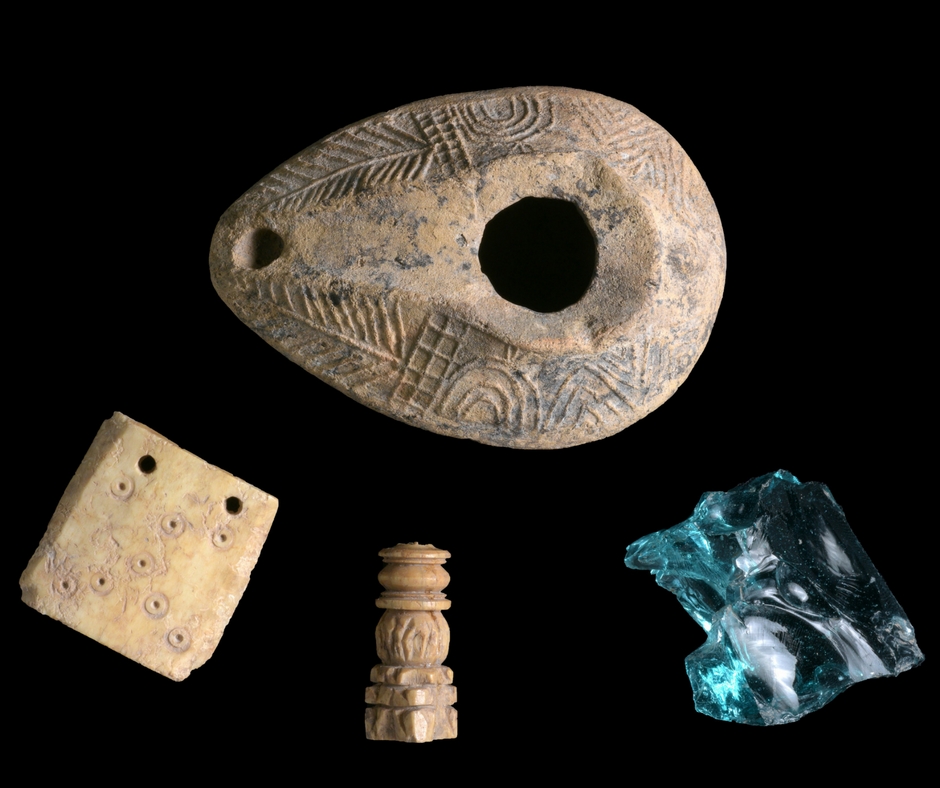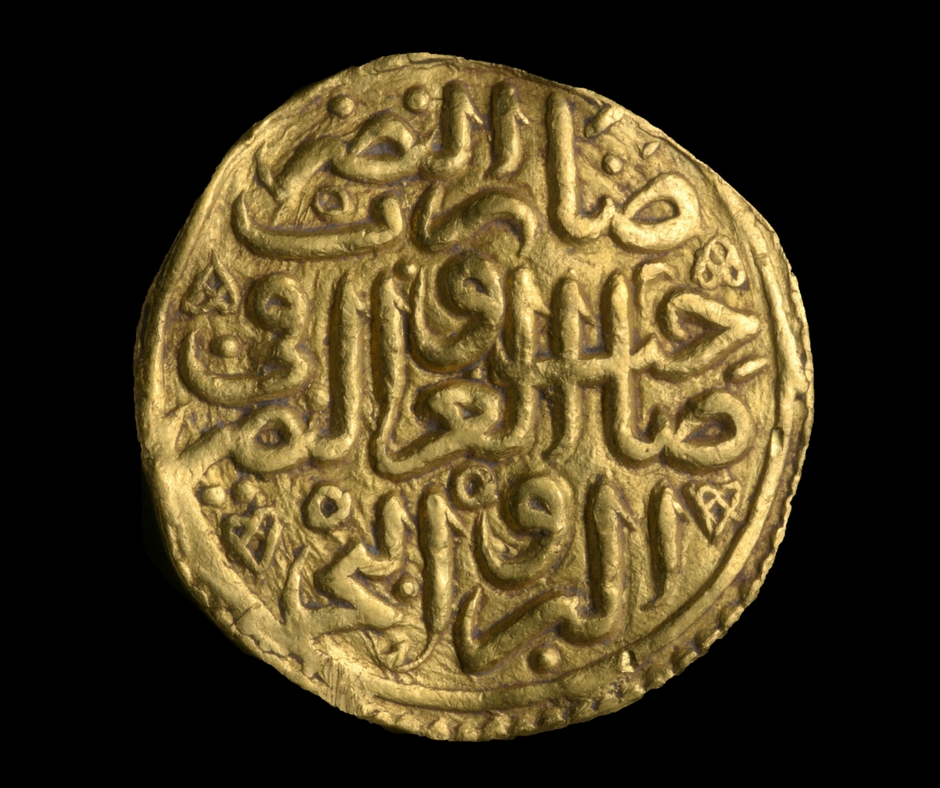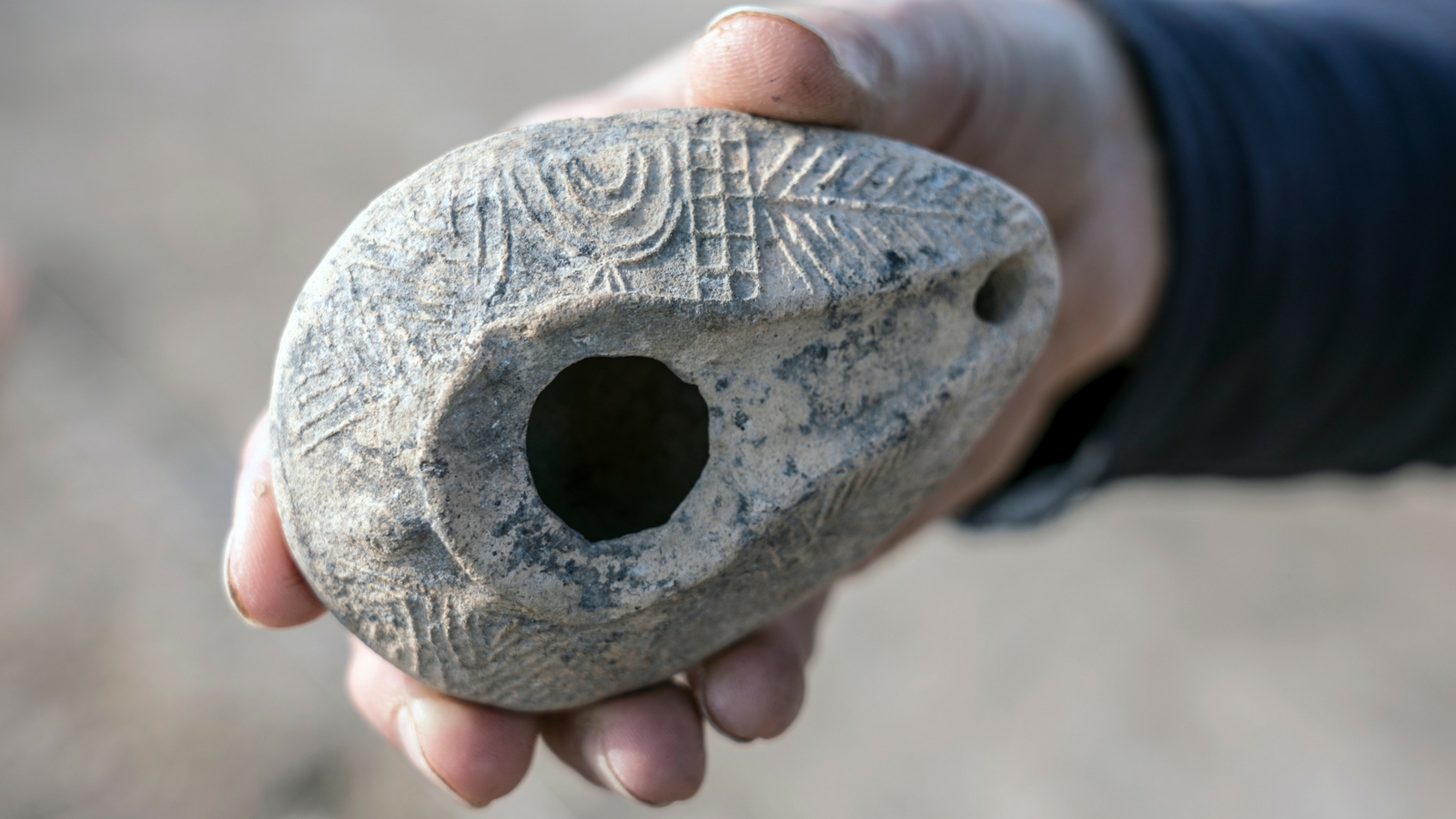When students and volunteers began their work on Israel’s first interactive hiking path, a 70-kilometer (43-mile) historic stretch of land dubbed the Sanhedrin Trail, they didn’t expect to find physical pieces of the country’s history.
During preparations for the trail, set to open in honor of Israel’s 70th Independence Day celebrations, the students’ excavation work uncovered ornamental items dating back 1,800 years.
The findings include an ancient oil lamp engraved with an eight-branched menorah, a rare gold coin inscribed with the name of Suleiman the Magnificent, and evidence of the glass industry mentioned in rabbinical texts.

“Unlike the modern day symbol of the state in which the Temple’s menorah is depicted with seven branches and a single broad base, the menorah engraved on the ancient lamp has eight branches and a three-legged base,” explained Einat Ambar-Armon, an archaeologist with the Israel Antiquities Authority and an expert on ancient clay lamps.
“The discovery of a lamp decorated with a menorah, a symbol of the Jewish people, is without doubt exciting, especially at a site with such a unique heritage in part of the Sanhedrin Trail.”

The trail, running between Tiberias and Beit Sheʽarim National Park in the Lower Galilee, will bring hikers back in history to the Second Temple period more than 2,000 years ago, when the Great Sanhedrin — the supreme Jewish authority of sages – was active in this region.
Hikers will have access to an innovative augmented reality-based smartphone application that will virtually reconstruct heritage sites, integrate virtual guides for children along the route and bring to life prominent scholars such as the four rabbis mentioned in the Passover Haggadah.
“The establishment of the trail and walking on it will connect those who live here today with the atmosphere and frame of mind of that period,” said Yair Amitzur, the Israel Antiquities Authority’s antiquities inspector for the Eastern Galilee, and one of the initiators of the idea.
“The trail will afford visitors a learning experience about the Mishnah and Talmud period and connect them to the world of the sages who shaped Judaism in the religious houses of learning.”
The inauguration of the trail will take place immediately after Independence Day, April 22-26. Each day there will be marches and activities for students, families and children on a different section along the trail, the Israel Antiquities Authority said.
For more details, click here.

















